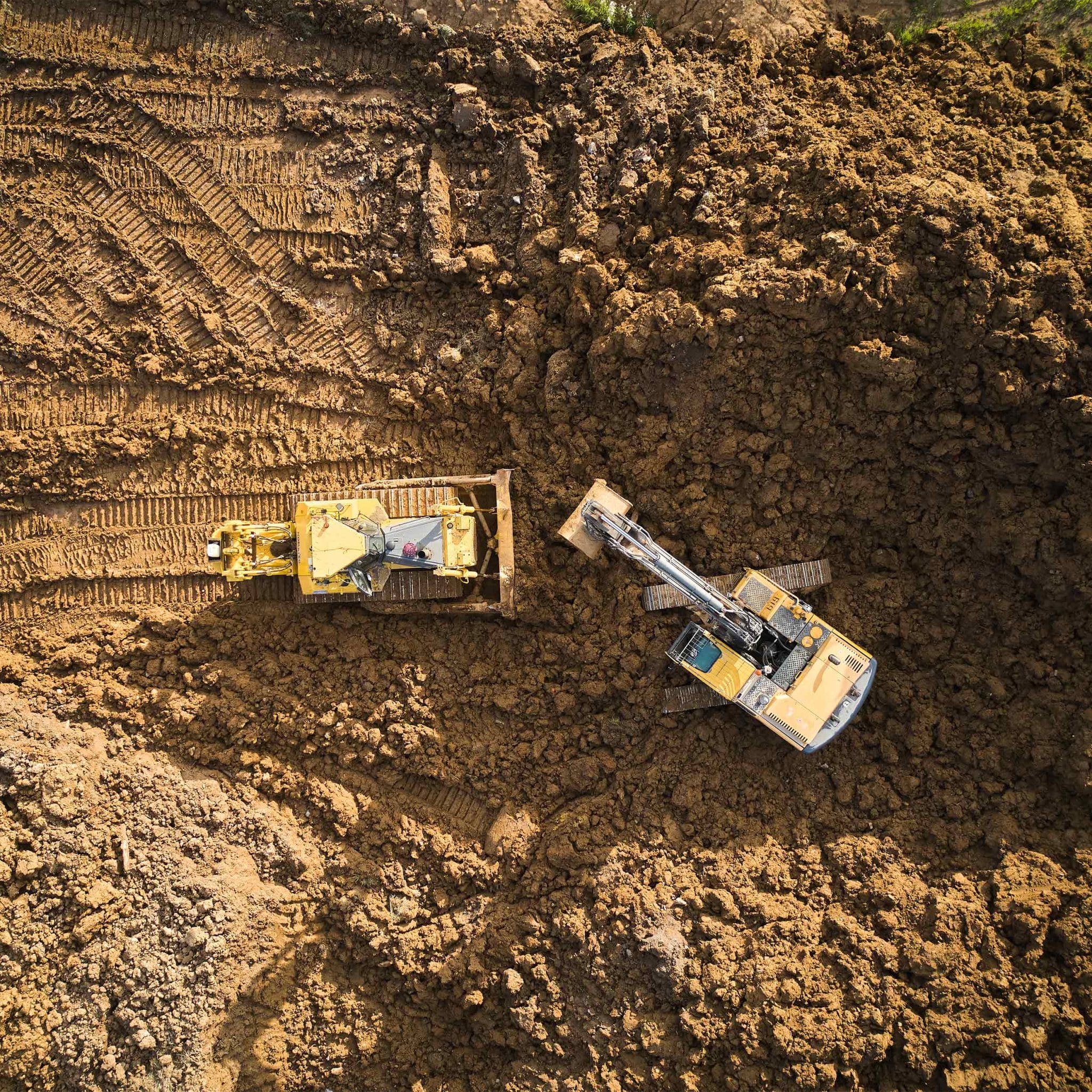The Development of Civil Consulting Engineers in the Modern Period
The Development of Civil Consulting Engineers in the Modern Period
Blog Article
Recognizing the Comprehensive Duty of Geotechnical Engineers in Ground Investigation and Soil Evaluation for Building Projects
Geotechnical engineers are important to the success of building jobs, giving essential understandings via thorough ground investigations and dirt analysis. Their expertise in examining dirt actions and using innovative screening methods notifies vital decisions that support structural honesty and safety and security.
Duty of Geotechnical Designers
The essential function of geotechnical engineers in construction projects can not be overemphasized, as they give crucial understandings into dirt actions and site conditions. These specialists are charged with assessing the suitability of the ground for numerous kinds of frameworks, making certain safety and security throughout the building procedure. Their proficiency incorporates a large range of activities, including website characterization, dirt tasting, and laboratory testing, which are vital for determining the physical and mechanical residential or commercial properties of the soil.
Geotechnical engineers utilize their findings to develop foundational designs that accommodate load-bearing demands and reduce threats associated with soil slope, liquefaction, and settlement stability. They play an essential duty in recognizing prospective hazards, such as groundwater fluctuations and contamination, which can considerably impact project stability. Furthermore, they work together with designers, civil designers, and specialists to guarantee that geotechnical factors to consider are integrated into the overall design and building and construction stages.
Ground Investigation Techniques
Ground examination methods develop the foundation of geotechnical design, making it possible for designers to gain a comprehensive understanding of subsurface problems. These techniques are essential for analyzing dirt residential properties, determining groundwater levels, and recognizing prospective geological hazards.
Common methods include borehole boring, which permits for the removal of dirt samples at different depths, giving essential data for evaluation. Additionally, sitting screening strategies, such as Typical Penetration Tests (SPT) and Cone Penetration Tests (CPT), are employed to examine dirt strength and density straight in the ground.
Geophysical methods likewise play a substantial function in ground examinations. Methods such as seismic surveys and electric resistivity tomography help evaluate subsurface qualities without extensive excavation. geo tech engineering. These non-invasive approaches are especially advantageous in large or delicate locations where interruption must be minimized
Moreover, exploratory trenches can be dug deep into to aesthetically evaluate dirt layers and determine any kind of anomalies. Each of these methods contributes distinct insights, enabling geotechnical designers to develop accurate website analyses and educate layout decisions. In summary, a mix of these ground examination techniques is essential for successful building and construction projects, ensuring safety and architectural integrity.
Soil Evaluation Methods
Dirt evaluation techniques are important for comprehending the physical and chemical buildings of soil, which straight affect the design and building and construction of foundations and other structures. Numerous strategies are employed to evaluate dirt features, guaranteeing that geotechnical engineers obtain exact information for informed decision-making.
One typically utilized technique is grain dimension evaluation, which determines the distribution of particle sizes within a soil sample. This is crucial for identifying dirt kinds and forecasting their behavior under load. One more vital strategy is Atterberg limitations testing, which assesses the plasticity and wetness material of fine-grained soils, supplying understandings right into their design homes.

Area tests, such as Typical Penetration Examinations (SPT) and Cone Penetration Tests (CPT), deal valuable in-situ information regarding soil toughness and stratification. Collectively, these dirt evaluation methods develop the structure of geotechnical investigation, enabling designers to design risk-free and reliable structures tailored to the certain problems of the site.
Danger Reduction Strategies
Executing reliable risk mitigation methods is essential for geotechnical engineers to attend to potential difficulties in building and construction projects. These methods are essential in determining, analyzing, and handling image source dangers connected with soil conditions, site security, and groundwater variations, which can adversely affect job outcomes.
One primary technique includes performing comprehensive website investigations that utilize advanced geophysical methods and extensive dirt tasting. By acquiring accurate data on subsurface problems, designers can make informed decisions on design and building techniques. Furthermore, using anticipating modeling devices allows for the simulation of various situations, making it possible for engineers to predict potential problems and carry out safety nets.
Furthermore, developing clear interaction networks among job stakeholders promotes a collaborative method to risk management. Normal updates and appointments make certain that all celebrations know the advancing website conditions and can adapt their strategies as necessary.

Influence On Construction Projects
The efficiency of danger reduction methods straight affects the total success of construction projects. Geotechnical engineers play a critical function in this domain, as their knowledge in ground investigation and soil evaluation educates crucial decisions throughout the construction process. By accurately examining dirt problems and recognizing possible hazards, these professionals make it possible for task teams to devise effective solutions that reduce risks associated with ground instability, water infiltration, and other geotechnical challenges.
The impact of extensive geotechnical analysis appears in various aspects of building and construction tasks, consisting of expense monitoring, project timelines, and architectural stability. Early identification of concerns permits timely treatments, lessening costly hold-ups and budget plan overruns. An extensive understanding of website conditions boosts the design and design process, making sure that structures are developed to withstand ecological stress and potential all-natural disasters.
Eventually, the payments of geotechnical engineers are indispensable to the successful implementation of construction tasks. Their job not only cultivates safety and compliance with laws but likewise boosts the long-term sustainability of structures, making certain that they perform successfully throughout their desired lifespan. The partnership in between geotechnical groups and other stakeholders is crucial for achieving ideal results in building and construction endeavors.
Final Thought
To conclude, geotechnical designers execute an important feature in building and construction projects through detailed ground examinations and dirt evaluations. Their competence in analyzing dirt behavior, employing different investigation methods, and applying danger mitigation methods significantly adds to the structural over at this website integrity and security of constructed settings. By collaborating with multidisciplinary teams, these professionals improve task performance and make certain compliance with security criteria, inevitably leading to successful construction results and minimized prospective risks.
Geotechnical engineers are essential to the success of construction jobs, offering vital insights through extensive ground investigations and dirt evaluation.The essential function of geotechnical engineers in construction projects can not be overstated, as they give crucial understandings into dirt actions and site conditions. Their proficiency encompasses a vast variety of activities, including website characterization, dirt sampling, and research laboratory screening, which are essential for determining the mechanical and physical buildings of the dirt.
By precisely analyzing dirt conditions and recognizing prospective hazards, these specialists allow task groups to develop reliable options that reduce threats associated with ground instability, water seepage, and other geotechnical obstacles.
In final thought, find geotechnical designers carry out an essential feature in construction jobs through detailed ground investigations and dirt evaluations.
Report this page